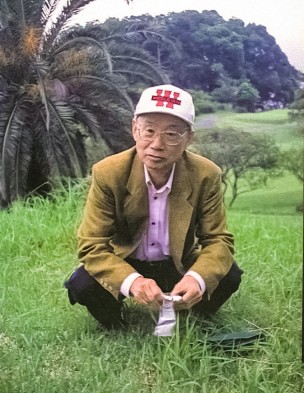
When the recipients of the 2015 Nobel Prizes were announced this month, members of the University community may have recognized a name in one particular category. Max Tishler Professor of Chemistry Satoshi Omura was awarded the Nobel Prize in Physiology or Medicine on Oct. 5, along with William Campbell and Tu Youyou, for his work in deriving lifesaving antiparasitic drugs from materials found naturally in herbs and soil.
Omura first found evidence that led to the development of Avermectin, the precursor to the drug Ivermectin, during his time at the University. Ivermectin, named as an essential medication by the World Health Organization, is considered invaluable in the treatment of parasitic illnesses such as river blindness. This waterborne disease causes severe damage to the eye, resulting in total blindness. Ivermectin can also be used in the treatment of parasitic diseases affecting the lymph system.
The Nobel Committee awarded one half of the prize jointly to Omura and Campbell for their work on Avermectin. The second half went to Tu for the development of the drug Artemisinin, which has proven invaluable in fighting another parasitic illness, malaria.
Merck & Company, the pharmaceutical corporation that manufactures Ivermectin, generated high enough profits from the sale of the drug for domestic and farm animals so that it can be distributed at low or no cost to parts of the world where the risk for parasitic diseases is greatest. In an official statement, the Nobel Committee highlighted the global humanitarian impact that Omura and his colleagues’ research has had.
“These two discoveries have provided humankind with powerful new means to combat these debilitating diseases that affect hundreds of millions of people annually,” the statement reads. “The consequences in terms of improved human health and reduced suffering are immeasurable.”
In an auspicious start to his career, Omura earned two PhD’s in the years immediately preceding his time at the University: In 1968, he received his first doctorate in Pharmaceutical Sciences from the University of Tokyo, and just two years later, earned a second doctorate in Chemistry from the Tokyo University of Sciences. In addition to serving as a Visiting Research Professor at the University from 1971-1973, Omura also held positions at Yamanashi University, the Kiataso Institute, Kiataso University of Sciences, the Tokyo University of Sciences, and Joshibi University of Art and Design, all of which are located in Japan.
Omura currently holds the titles of Professor Emeritus at Kiataso University, President Emeritus at the Kiataso Institute, President of the Joshibi University of Art and Design, as well as one honorary title with Wesleyan University. In 2005, Omura was named the first Max Tishler Professor of Chemistry.
University President Michael Roth expressed his delight in Omura’s winning such a prestigious award.
“We were all thrilled to learn about Dr. Omura winning the Nobel Prize,” Roth said. “He is a great friend of Wesleyan, and a stellar example of the high caliber of scientific research being done here that has a real impact out in the world. His work leading to the development of the drug Ivermectin has saved thousands of lives and nearly eradicated river blindness.”
As reported by the New York Times, Omura accepted this top honor with humor and humility.
“I merely borrowed the power of microbes,” he said at a press conference in Tokyo. “I never imagined I would win. If I had, I’d have worn a nicer necktie.”


Leave a Reply